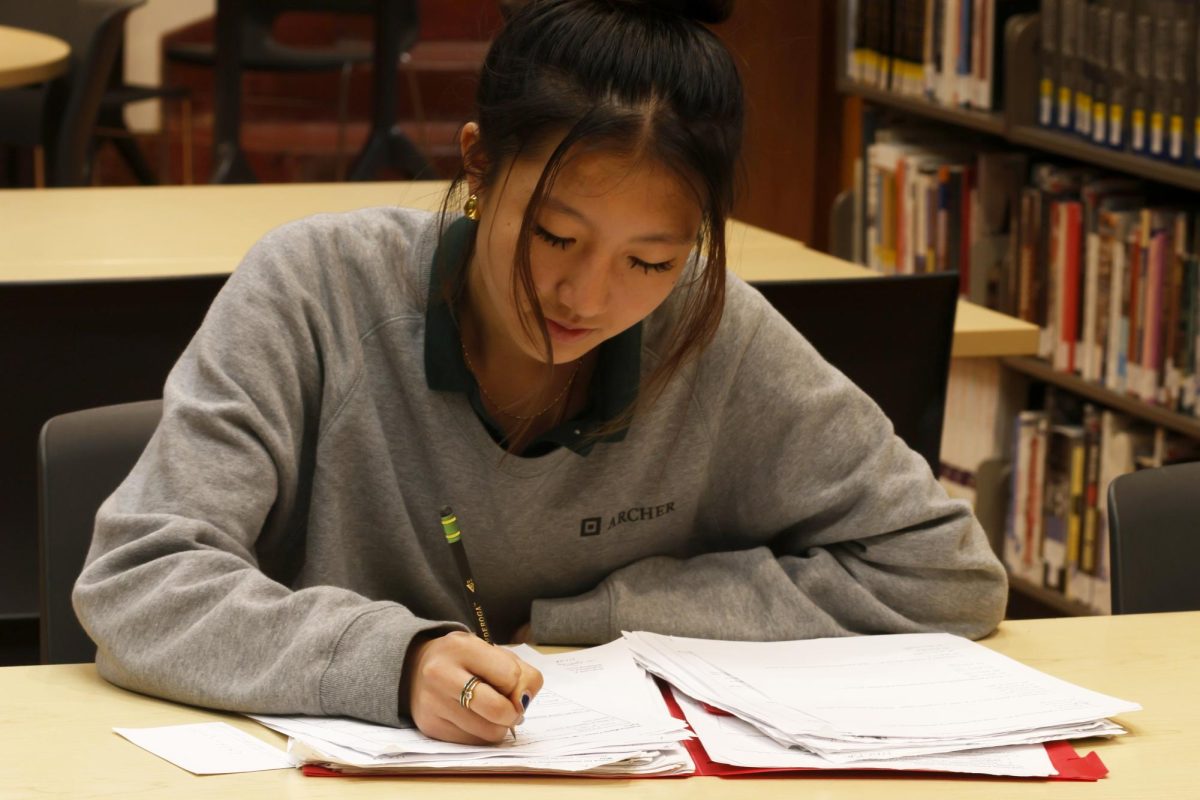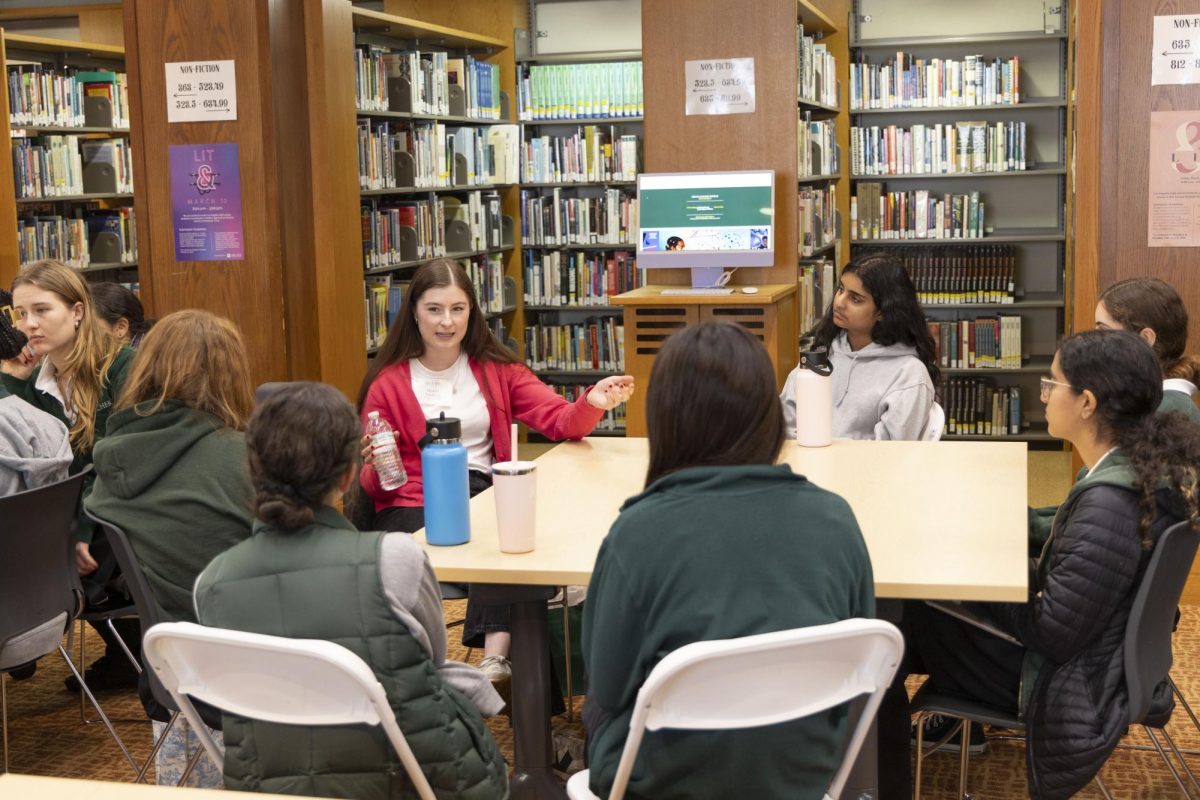When thinking about the week before finals week, many students likely feel a sense of stress at the thought of managing back-to-back tests and projects leading up to their final exams the following week.
Director of Upper School Maggie Cenan, Director of Academic Operations Kasey Nott and the department chairs met at the beginning of the school year to discuss new changes to the school’s finals week schedule to better meet students’ and teachers’ needs.
Previously, students would have three days of finals dedicated to their strictly proctored exams, in which they were seated in common areas such as the dining hall or the library. Each testing day focused on one or two subjects, and if a student did not have an exam scheduled for a particular day, they were not required to come to school.
Cenan said the Challenge Success survey data collected last spring inspired the decision for the final exam format change, as more than half of the student body expressed a desire for improved coordination of exams and projects during the end of the semester.
Previously, during the week prior to finals, classes would often have unit tests or projects in place of a traditional final exam. As a result, some students did not have exams for those classes. Cenan said that this system shortened the semester by a few days.
“In the past, what we had experienced from students, parents and teachers is that the students have a lot of tests that are before, and there was a lighter load during the actual final time. And we heard from teachers that they were hoping that there is going to be more flexibility during these final three days,” Cenan said. “So our decision to think about is how can we best coordinate the final exam, end of the year presentations or chapter assessments and also give back a period to the teachers.”
The new finals schedule will be implemented over the last three days of the semester, following a block schedule format with three one-hour and 45-minute periods per day. Students will either take their exams or attend regular classes during their scheduled blocks.
Junior Charlotte Stein said she is interested in how this new system is going to work out, as she is planning to adjust her study plans from previous semesters.
“I think it’s going to be harder to study, because I remember, in previous years, if I had a final in the afternoon, I just studied the entire morning before,” Stein said. “But now that we have classes, I think it might be harder, so I have to budget more time before and study more ahead of time.”
This year will be Bonnie Hoytema’s (’28) first time taking finals. She said she has been using Quizlet, Delta Math, her notes from class and the resources teachers posted on Canvas to review the materials she learned throughout the semester.
“I’m feeling a little bit excited honestly, because I don’t know much about what’s on it, but I’m also feeling curious about how it’s going to be,” Hoytema said. “I definitely feel very prepared, because I’ve been told by a lot of people that you have to be prepared, and I’m just doing all I can do to study.”
In past semesters, a teacher who did not teach the material being tested would proctor the exams. However, with the new schedule, students will take their finals in their own classrooms with their subject teachers as their proctors.
“We believe that our teachers are very much professional, so there shouldn’t be any difference with this final exam versus all of the other assessments,” Cenan said. “We also noticed that, in college, the teacher will proctor their own final exams, and so we didn’t feel like it was any different.”
Archer policy limits the number of major assessments a student takes per day to two. However, due to this new schedule change, some students may have three finals scheduled on the same day. Nott reached out to these students and rescheduled one of their finals to a free period or a FLX block on a day when they have one final to ease the workload.
Cenan said she spoke to other school administrators, and the new schedule Archer has implemented is the most common one that other schools had the greatest success in.
“We really want to prioritize the students’ experiences at the heart of our decisions,” Cenan said. “Although I can’t predict the outcome, based on what other schools have done, they’ve either used the schedule we’re testing or the previous one. Whether this new schedule will continue at Archer depends on how students experience it, as well as the feedback from teachers. We will see if we have to make adjustments. At Archer, we are innovative, and we will always make sure our decisions are written by student experiences.”










